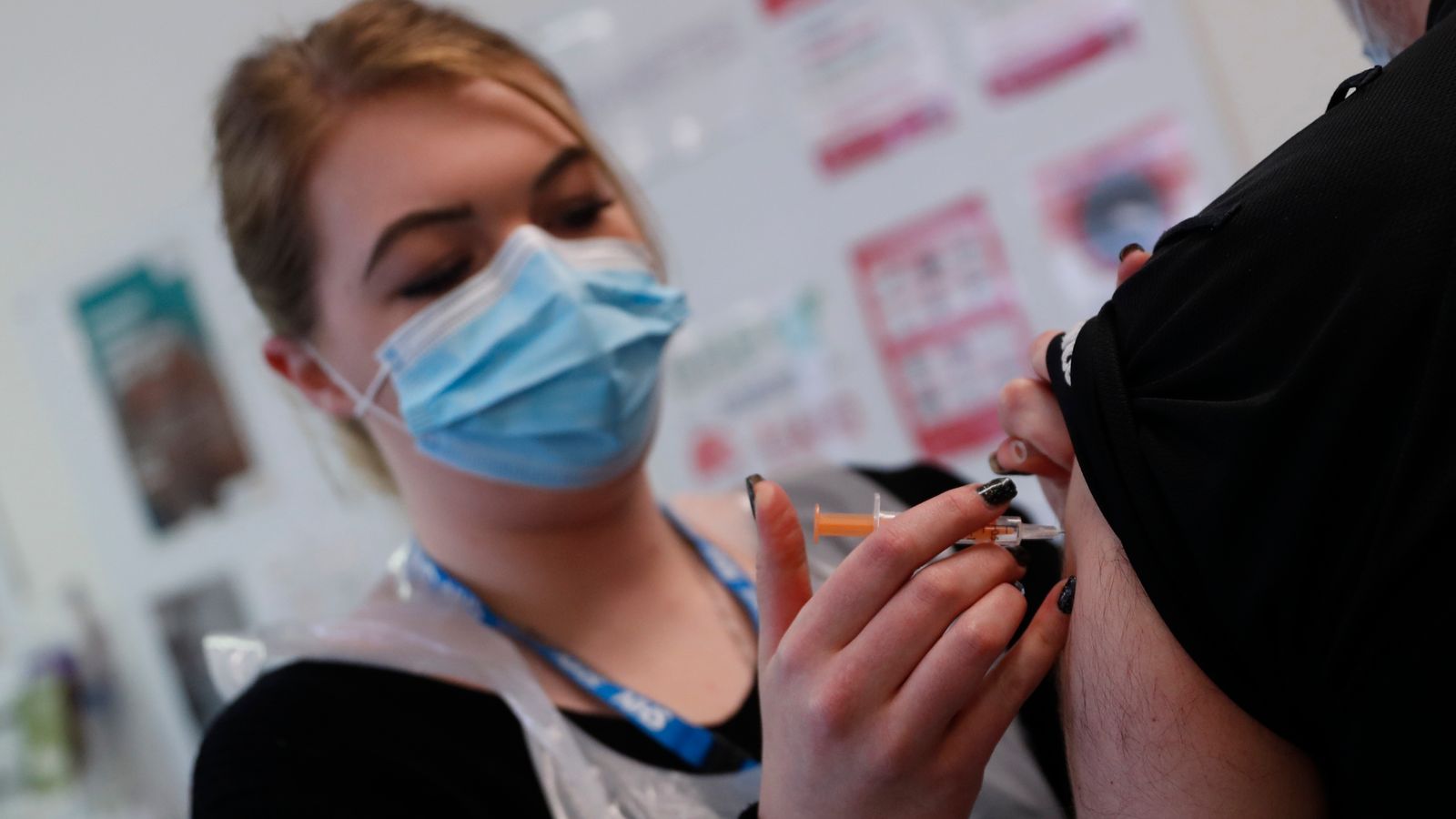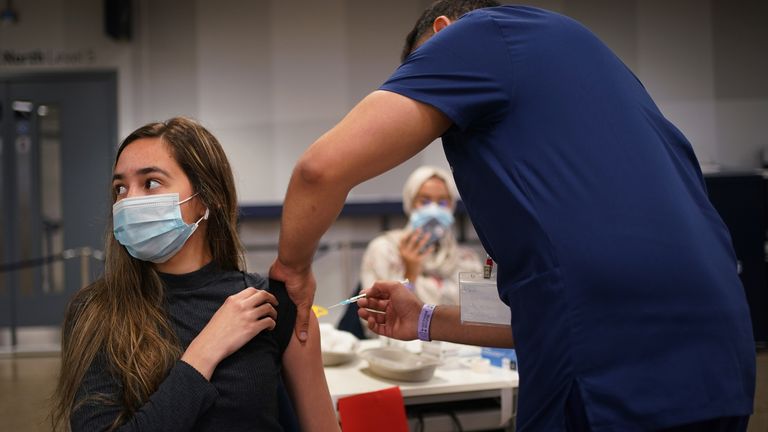COVID-19 protection from two doses of the Pfizer or AstraZeneca vaccines begins to wane within six months, new research suggests.
In a reasonable “worst-case scenario”, protection could fall to below 50% for the elderly and healthcare workers by winter, analysis from the Zoe COVID study found.
The Pfizer-BioNTech jab was 88% effective at preventing coronavirus infection a month after the second dose.
But the protection decreased to 74% after five to six months – suggesting protection fell 14 percentage points in four months.
Live COVID updates from across the UK and around the world
Meanwhile, protection from the Oxford-AstraZeneca vaccine fell to 77% just one month after the second dose.
It decreased to 67% after four to five months – suggesting protection fell by 10 percentage points over three months.
The vast study involved more than 1.2 million test results and participants, though the vaccines were not trialled against the now dominant Delta variant of the virus.
Pfizer‘s mid-term efficacy trial observed an initial 96.2% risk reduction in infection up to two months after the second dose.
There was an 83.7% reduction around four months after the second dose – a 12.5 percentage point increase in risk of infection.
COVID vaccines were rolled out across the UK among the older and the most vulnerable in society along with health workers first, before being given to younger age groups.
So the majority of people who had their second dose five to six months ago will be older or considered vulnerable due to other health reasons – suggesting they are now likely to be at increased risk of COVID-19 compared to those vaccinated more recently.
Professor Tim Spector, lead scientist on the Zoe COVID Study app, said: “In my opinion, a reasonable worst-case scenario could see protection below 50% for the elderly and healthcare workers by winter.
“If high levels of infection in the UK, driven by loosened social restrictions and a highly transmissible variant, this scenario could mean increased hospitalisations and deaths”.
He said that we “urgently need to make plans for vaccine boosters” as well as decide if a strategy to vaccinate children is sensible if the aim is to reduce deaths and hospital admissions.
Prof Spector continued: “Waning protection is to be expected and is not a reason to not get vaccinated.
“Vaccines still provide high levels of protection for the majority of the population, especially against the Delta variant, so we still need as many people as possible to get fully vaccinated.”
The Zoe COVID Study launched an app feature last December to enable logging of coronavirus vaccines and monitor real-world side-effects and effectiveness in its cohort of over a million users.
It used data from vaccines which were recorded from 8 December 2020 to 3 July 2021, and from infections that occurred between 26 May this year when the Delta variant became dominant, and 31 July.
The study’s results were slightly adjusted to give an average risk of infection reduction across the population.
Researchers claim that while protection appears to decrease steadily, the individual risk may vary due to individual variation in antibody duration.

